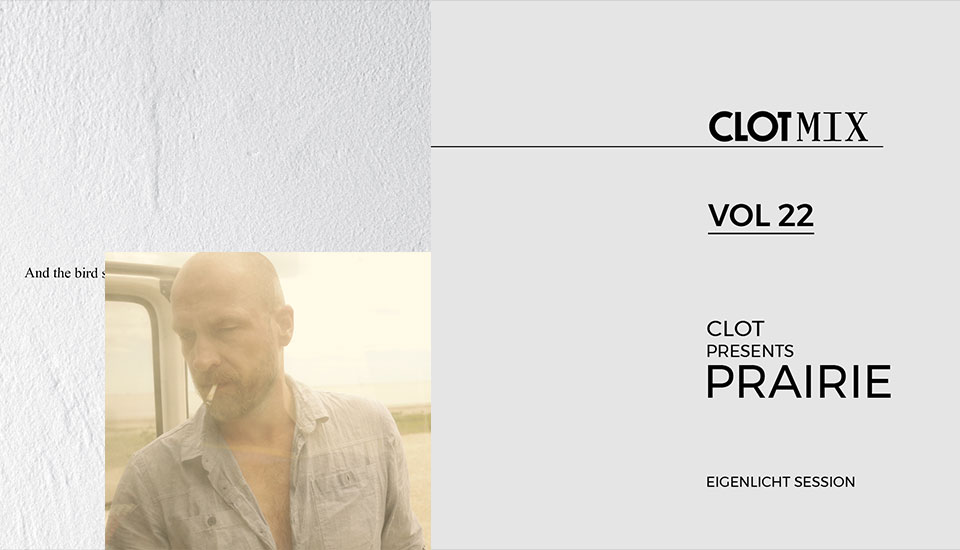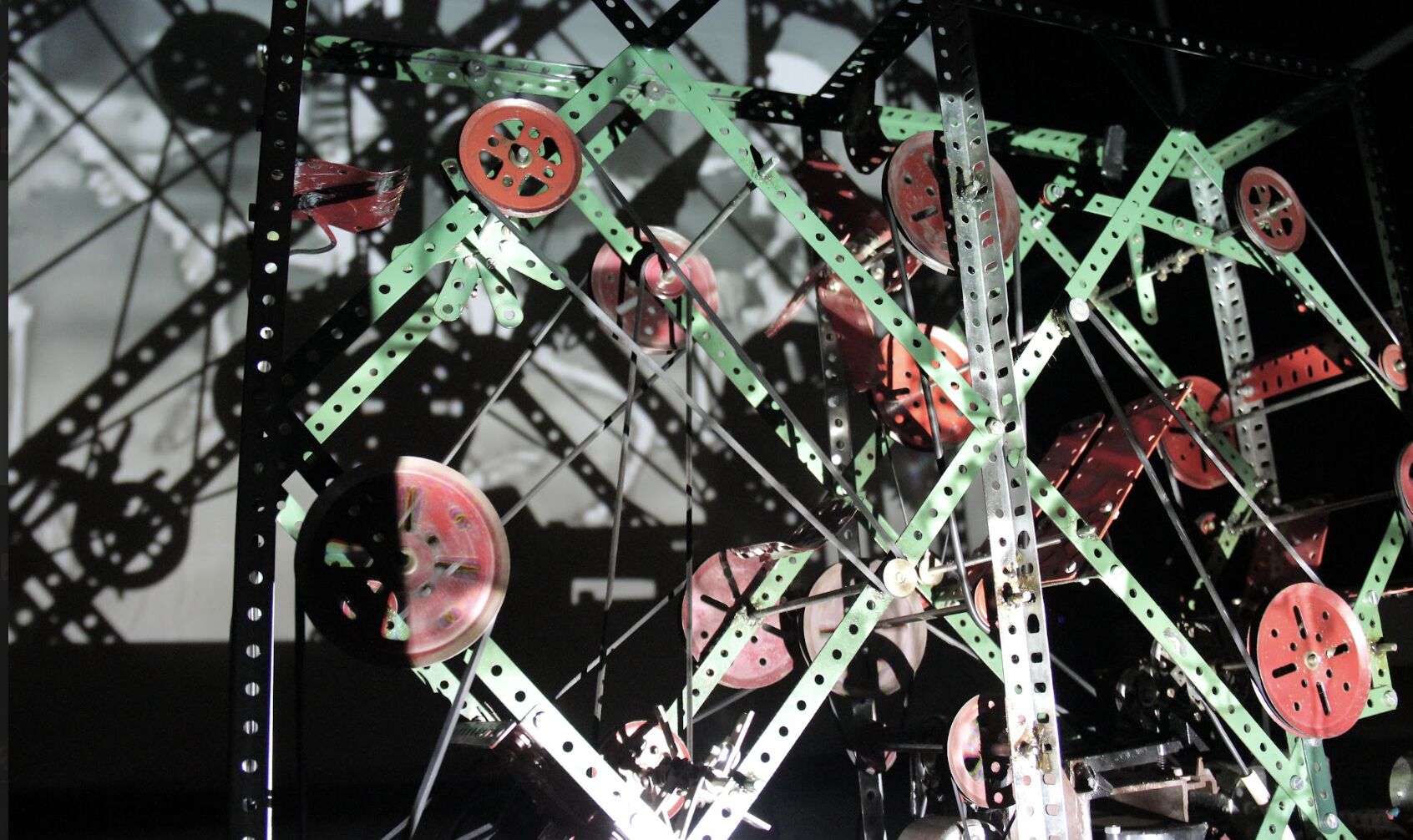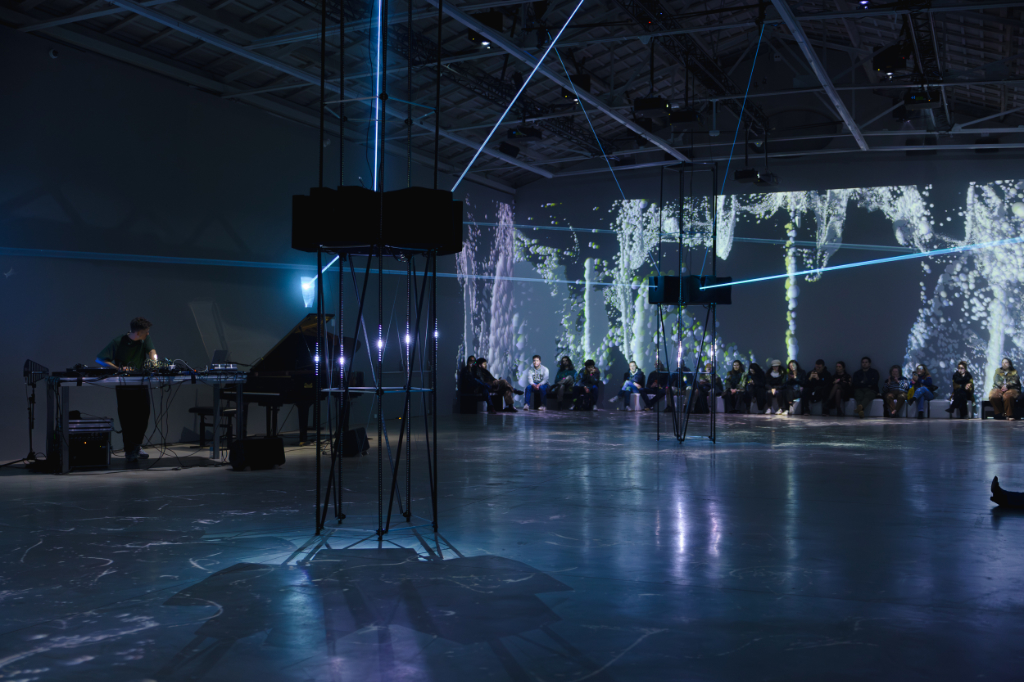Text by CLOT Magazine

Next in our series of mixtapes comes from Prairie, the project of multi-instrumentalist and producer Marc Jacobs, who has prepared a selection of tracks to submerge our minds into a semi-awake state, where senses are heightened, and we experience sound and reality in an otherworldly manner.
Jacobs, with his Prairie output, has recently published a new album in Denovali Records And the Bird Said: Cut Me Open and Sing Me, his second release on the experimental German label. With a sound that some have acquainted with a space between Bohren & der Club of Gore and Sunn O))), his releases are infused with a vivid cinematographic narrative. Sonic landscapes are provided by layers of synths and instruments that remind us of the passing of time and the persistence of memory.
And the bird said, Jacobs says, was inspired by the silence of the birds, the tone between a mother and her daughter, the Sandsnipe twins, constant wailing sirens… the memory of a Vangelis track. Composed in several locations from the urban in the city, or his studio Les Lacs and in the mountains of the French Cévennes, the producer integrates his various recording locations into his sound design, creating this ample sound, resembling the sights of vast fields in the early morning hours, when life is awaking surrounded by a layer of unknown mystery yet to be unveiled.
Jacobs also works as a music consultant and as a curator of experimental and electronic music for various venues, events and festivals, among which the Centre for Fine Arts in Brussels (Bozar) and he is also the founder of Le Bureau Electronique, a platform dedicated to the promotion of leftfield music and arts in Belgium.
This mixtape consists of various approaches to sound and music, where the artist has combined the different forms of production of the tracks in order to create a feeling of a narcotic or hypnagogic state: It is a state I particularly enjoy, it enables surprising auditory connections and stimulates the imagination. I have chosen the tracks according to the connections they created with one another, like a cadavre-exquis – or how you can fall into a cascade of images or ideas just before you start dreaming.
You just published your new album, And The Bird Said: Cut Me Open And Sing Me. What was the creative process like? Did you follow your usual process, or were experimenting with others?
I am continuously writing and recording and thus experimenting with various techniques. For this album, I definitely was trying to get a different sound palette than in my previous work, and depending on the tracks of the album, I used various approaches. Some tracks were recorded in a remote cabin in the French Cévennes, where I hardly had any gear and worked mainly outdoors in the sun overlooking the trees, which led me to a very intuitive and minimal approach, letting the sounds and the feel of the forest in.
Other tracks were recorded in my home studio, where I experimented with microphones, and various amps such as my old 1963 Hohner amp for organs through which I played various synths. A first version of the album appeared, but I started everything over again, leaving many new tracks aside. I also wanted a more electronic feel to the whole, so I put my guitar aside for this album, which was a first for me.
What have you technically been exploring with it? And what were the challenges during its production?
During my recording process, I tend to play very loud, playing a lot with different saturations and feedback. So this got very tricky once I got to mixing with Frederic Alstadt. But he is an expert on noise, so he managed to capture the richness of the various layers of sound. I really only recently started working with (mainly) analogue synths.
I have totally fallen in love with them! I have been listening to electronic music for years, but only now I start to understand it technically. On this record, I have used the synths in a very intuitive way, not really knowing what I was doing but loving the accidents that were occurring and being like a kid in a candy shop when hearing the connections of sound that were coming out of the various machines and effects. So this was an ear-opening learning process.
You make use of field recording in your compositions. Can you explain which area of this you explore and what they bring to your compositions? How have they been used in your new album?
My partner Khristine Gillard is a documentary filmmaker. For her work and while shooting, she records a vast array of sounds. We both also listen to other people’s field recordings, which allows the ear and the brain to a different sensitivity to sound, in a completely different way than listening to music. What interests me in those recordings are the connexions it makes to music.
The track « Camargue », for instance, was recorded by Khristine during a shooting, where a mysterious flute sound appeared from nowhere. It is said that a beast roams in the wilderness there, so it might have been it playing that tune exactly at the right moment. Adding those recordings in between the musical tracks, for example, allows the listener to be transported into another state of hearing and creates parallels with the music.
Like the narration in a film, I want to take the listener into different territories, stepping slightly away from the storytelling and jumping back into it. But I am just at the beginning of exploring this; there is still a lot to do and to learn!
You mention that one of the inspirations behind it was the silence of the birds, something that during the pandemic lockdown changed considerably, some field recordists say. While R. Murray Schafer devised the term “Sound Ecology”, would you say you are concerned with promoting a less polluted sound environment, or is this rather a matter of inevitable evolution of the ecosystems?
I am interested in biophony, a term coined by soundscape ecologist and musician Bernie Krause. Like with music, combinations of sounds produced by living organisms create very rich compositions that sometimes can be compared to very complex symphonies. When I was recording in the Cévennes, in that particular area, there were hardly any birds because there was not much food for them.
So whenever I would hear a bird, mostly an isolated raptor, it would become a real event, breaking the silence. I am, of course, concerned by the damage created by humans within the sonic spectrum, as it affects the communication between species directly and thus causes some species to disappear. I don’t think this is going to get any better, as the real humanless spaces on the planet are getting scarce. We should have ecological sound artists that are as famous as Richard Attenborough!
What is your relationship with technology nowadays? How do you cope with screen/digital technology overload?
I need electricity for my instruments and tools and a computer to record and compose. That’s basically it. But there are moments where I’d wish for the internet to disappear out of our lives magically and then observe the reaction of our world. But then again, this hate/love relationship most of us have with technology only accentuates the polarization of global thought, which is very scary.
At some point, the internet will be regulated, and that might be even more frightening. On the other hand, I am interested in the research made within the field of art, science and technology and how this can impact our strategy on climate and ecological issues. I truly believe we have all the knowledge and tools that are ready to function for our ecology right now, but our governments and powers in place are clinging on to the old capitalist short-term-thinking system.
So I hope that technological advancements will provoke new chains of thought on a geopolitical level, positively and massively, so that humanity can become a humble species and find its true place on this planet.
Music and sound by the following artists, in order of appearance:
Plastikman, Robert Ashley, Godspeed You! Black Emperor, Mt Gemini, Aymeric de Tapol, Francisco Lopez, Simon Fisher Turner, Lionel Marchetti, Kate Carr, Lawrence English, Niedowierzanie, Ernest Hood.






